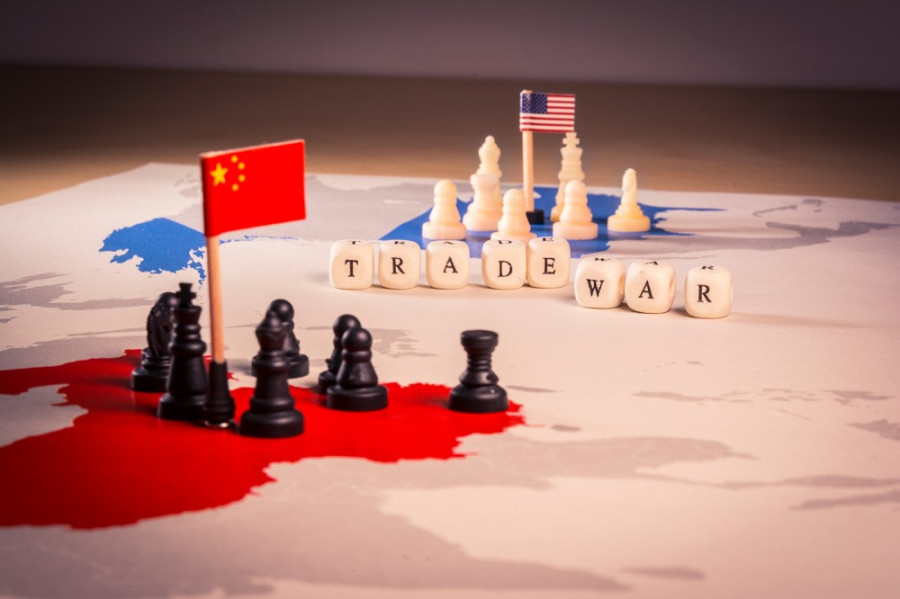Columns
The Indo-Pacific strategy is a bad idea
If Nepal joins the US-led strategy, it may cause a fundamental change in the hard-won regional balance and the geopolitical environment.
Gao Liang
Political realists generally believe that the Thucydides Trap—the idea that an emerging power will inevitably challenge the existing powers, and the latter will inevitably respond to such a challenge and make the war inevitable—cannot be avoided. Now, although China has been trying to convince the world that it is pursuing a peaceful rise, the war seems to have already begun in trading and technology competition. While uniting its allies in hunting Huawei on a global scale and waging a tariff war on China, the United States’ Trump administration is pushing hard to include Nepal and several other South Asian countries into its Indo-Pacific Strategy.
Political prejudice
At the end of the 1940s, the North Atlantic Treaty Organisation (NATO), a military organisation directly against the Soviet Union, was established under the leadership of the United States. Seventy years later, while maintaining absolute military superiority in the Pacific region, the US is seeking military cooperation as a tool to further enhance its presence in South Asia. The world has to worry about its real motivation.
The US explains that the main purpose of its Indo-Pacific Strategy is to ‘uphold a free and open Indo-Pacific’. Yet the question remains—free from whom and free from what? One can easily come to the conclusion that the untold threat is China. If the US wants to build an Indo-Pacific version of NATO to confront China, it may not succeed. China, unlike the militaristic Soviet Union, is not interested in any military competition at all. History and reality have made China more convinced of the importance of domestic stability and development.
China has broad economic interests in South Asia, which are based on mutual benefit and common development with South Asian countries. It is of great significance in achieving common prosperity and improving the lives of people in the region. If the United States would interpret China's existence in South Asia as a threat to openness and freedom, then this kind of discrimination based solely on ideology and political prejudice will be the real cause of antagonism. China has neither the will nor the strength to challenge the US. China has developed into what it is today in a world order dominated by the US. It is very likely that China will not try to break this world order and replace it with one of its own. However, it is very obvious that China will never yield to the rules imposed on it.
Another boulder emerges
In a recent report, the US Department of Defense lists Nepal as a participant of the Indo-Pacific Strategy and seeks to expand their defense relationship on this basis. Nepal has always hoped to maximise its national interests by maintaining a dynamic balance between its two neighbours. In recent years, the progress of Nepal's domestic political situation and the adjustments of China and India's respective strategies have evolved in a direction conducive for it to achieve such a balance. If Nepal joins the US strategy to contain China in such a background, it may cause a fundamental change in the hard-won balance and change the geopolitical environment of the whole region.
Policymakers in Nepal have adopted a pragmatic approach to this issue. Despite its acceptance of the US Millennium Challenge Corporation Compact programme, the Foreign Ministry's denial of a role in Indo-Pacific Strategy clearly indicates that Nepal is far from ready to join this strategy. What Nepal needs most now is development and prosperity, and what it does not need most is to take sides in a big power game. Joining that strategy and pushing the country to the forefront of the US containment against China will be a nightmare for both China and Nepal.
Stirring up the water
The focus of the Indo-Pacific Strategy is in the Indian Ocean region. In this region, there is another important rising power, India, which also has high expectations and ambitions. India has a traditional strategic interest in South Asia and has never hesitated to defend it. As a big country, it is impossible for India to fully cater to the strategic intentions of the United States. More importantly, the Indians should clearly see that if the Thucydides Trap occurs in relation to the United States and China, regardless of who wins or loses, India will be the next one sooner or later.
One more important factor is the determination and ability of the United States to implement the Indo-Pacific Strategy. The Trump administration, which has been promoting an America First strategy, has been breaking its promises and agreements with other countries repeatedly. This has greatly weakened the country’s credibility in the international stage. The latest strategy that the United States had painstakingly organised to contain China was the Trans-Pacific Partnership, which the incumbent US government has been the first one to ditch. Using its superior political and economic status to compel disobedient countries to accept conditions imposed on them has also made countries fearful. Perhaps what the current US administration, which is dominated by a business mindset, is really trying to do is to stir up the water.
Liang is a doctoral student at Sichuan University, China




 21.12°C Kathmandu
21.12°C Kathmandu















